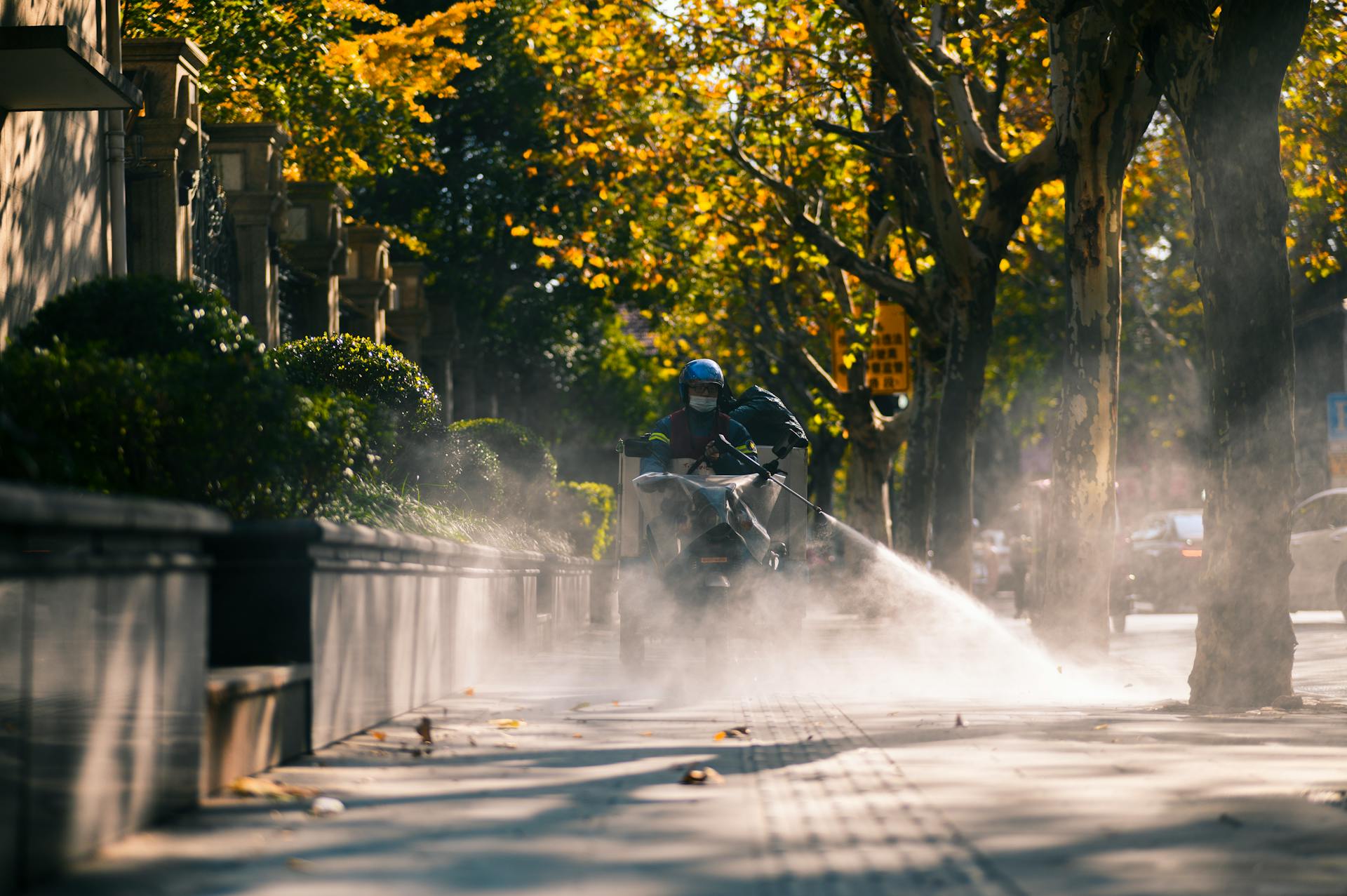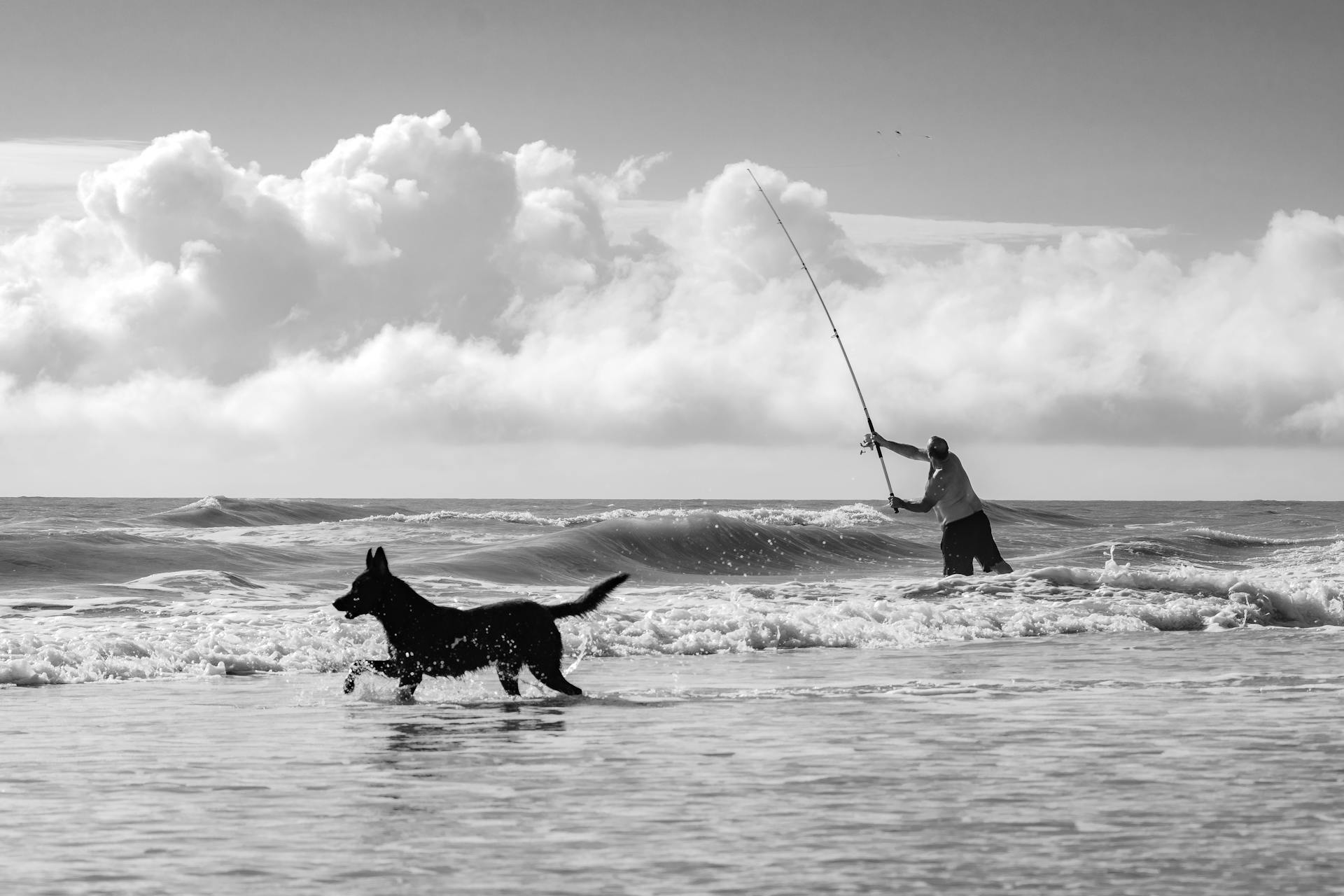
Spraying water on dogs can be a common practice, but is it really safe for our furry friends? According to research, using water as a form of punishment or correction can actually be counterproductive and even lead to increased anxiety and stress in dogs.
Dogs can associate the sensation of water with fear or discomfort, which can negatively impact their trust in their owners. This can be particularly problematic for dogs that are already anxious or fearful.
In some cases, spraying water on dogs can even lead to aggression or defensive behavior, especially if the dog feels threatened or cornered. It's essential to consider the potential consequences of our actions on our dogs' emotional well-being.
While some owners might see spraying water as a quick fix, it's crucial to explore alternative and more positive reinforcement-based methods for training and behavior modification.
What Are the Downsides?
Using a spray bottle to discipline your dog can have some serious downsides. It can lead to a negative association with the spray bottle itself.
Your dog may start to fear the spray bottle and associate it with punishment, causing them to display fearful responses like hiding.
This can also break the trust between you and your dog, causing them to regard you with fear and flee or turn away whenever you try to touch their face.
A spray bottle can even affect your dog's reaction to water-related activities, causing them to avoid and shun things like showers, grooming, and swimming.
The use of spray bottles as punishment is considered a form of aversive training, which can cause stress and anxiety in your dog.
This can lead to aggression and other behavioral problems, making it difficult to train your dog or have a happy relationship with them.
Aversive methods like spray bottles don't really work for long, and your dog will likely resume the behavior once you're removed from the picture.
They teach your dog nothing except that there's something bad after doing something, but they still don't know what else to do.
Broaden your view: Dogs and Water Bottles
Is Spraying Water Abuse?
Spraying a dog with water can cause mental suffering and lead to an irrational fear, as it can be perceived as a threatening or frightening experience.
The water itself won't physically harm a dog, but its effect can be just as damaging.
Alternatives to Spraying Water
Spraying your dog with water may provide temporary relief, but it's not a long-term solution. Dog spraying can do a lot of harm to your furry friend.
Fortunately, there are newer and more effective ways to discourage undesirable animal behavior. You can start by throwing away that spray bottle!
Positive reinforcement techniques, such as rewarding good behavior, are a much better approach. Maybe you've seen it work with a friend's dog, where they get treats for sitting or staying calm.
Can Vinegar Be Used on My Dog?
Using vinegar on your dog is not a good idea, it can cause a fear mentality in them.
If you're considering using vinegar and water to train your dog, don't, it can cause irritation, redness, and dryness on their skin.
Vinegar can also be harmful if it gets into your dog's eyes.
For more insights, see: White Vinegar and Water for Dogs
No Bottles

Spraying a dog with water may stop the behavior temporarily, but it's a new day and we now know that training with negative techniques can do a lot of harm.
Punishment doesn't teach your dog what to do instead of scratch furniture, bark, dig, etc. It only teaches them to practice the undesired behavior when you and the water bottle are not present.
Some dogs love being sprayed, and it becomes a game for some cats, making it an ineffective and potentially counterproductive method.
Spraying your dog with water may be effective punishment, but only temporarily, just like receiving a speeding ticket. After a few days, you resume your lead foot behavior, but remember to slow down when approaching the area in which you were ticketed.
You can imagine that when police are no longer present, you begin speeding through the area again. The same applies to your pet, and that's why spraying them with water doesn't work.
See what others are reading: Dog Behaviour When Owner Pregnant

Training your dog by spraying it with water does not work, and trainers have witnessed some who spray their puppies for mouthing, yet their arms are covered in scratches.
Spraying the dog with water was not helping, and one client sprayed her cats whenever they clawed her furniture, but unfortunately, every piece of her cloth furniture was scratched down to the foam with shredded cloth strings dangling.
Take a look at this: Dogs Not Drinking Water
Training Methods to Avoid
Spraying a dog with water to curb unwanted behavior is a method that's been used for decades, but it's time to rethink this approach.
Using punishment-based techniques like spraying water can do a lot of harm to your dog. It may stop the behavior temporarily, but it doesn't teach your dog what to do instead.
In fact, research shows that it takes 10-12 precisely timed rewards per minute for a dog to learn a new behavior. Punishment doesn't provide the same level of reinforcement.
Some owners may think spraying water is effective, but it's not a long-term solution. In fact, it can even lead to reactivity issues and aggression in some dogs.
Why Doesn't a Job Work?

Spraying a dog with water doesn't work as a training method. It's a form of punishment that only stops the behavior temporarily.
The problem is that punishment doesn't teach your dog what to do instead of the undesired behavior. For example, if you spray your dog for mouthing, it doesn't teach them what alternative behavior to exhibit.
Spraying a dog with water may stop the behavior, but it doesn't teach the dog what to do instead. It's like receiving a speeding ticket - it's a temporary punishment, but you'll likely resume your lead foot behavior once the police are no longer present.
Some dogs even enjoy being sprayed, and it becomes a game for them. This makes it clear that spraying a dog with water isn't an effective training method.
As a result, the undesired behavior will return as soon as you and the spray bottle leave the area. This can be frustrating for both you and your dog.

Spraying a dog with water is not only ineffective, but it can also lead to other problems. For example, a client who sprayed her cats for scratching furniture ended up with shredded cloth strings dangling from her furniture.
The key to effective training is to teach your dog what to do instead of the undesired behavior. Punishment alone won't cut it - you need to provide a clear alternative behavior for your dog to follow.
Can I Stop Fighting?
You can stop fighting dogs by spraying them with water, but do it safely. Never stand in between two dogs that are fighting, as this could put your own safety at risk.
Spraying dogs with water can be an effective way to startle and distract them. Just make sure not to use too powerful a spray jet that can inadvertently harm the dogs.
Training Methods to Avoid
Spraying a dog with water to curb unwanted behavior has been used for decades, but it's a technique that can do more harm than good.

Using punishment-based training methods like spray bottles can cause reactivity issues and even serious aggression in dogs. This is especially true for owners who use these methods for any behavior they find inappropriate.
Rewarding good behavior over and over in a short period of time is key to shaping a new habit in your dog. You need to get up to 10-12 precisely timed rewards per minute for the good behavior to start learning and forming a habit.
Any behavior that is rewarded will present itself more and more often, while any behavior that is not rewarded will tend to fade and happen less often. This phenomenon happens in people too, and it's a fundamental principle of learning and behavior.
Using punishment as a way of training your dog does not teach the correct behavior, but instead only stops it temporarily. The dog's bad conduct may appear to have stopped at first, but as soon as you and the spray bottle leave the area, it returns.
Punishment does not teach your dog what to do instead of scratch furniture, bark, dig, etc. It simply teaches them to practice the undesired behavior when you and the water bottle are not present.
Some owners love being sprayed, and it becomes a game for some cats. This is a clear indication that the punishment is not effective in changing the dog's behavior.
Additional reading: Dog Urine Killing Grass Male vs Female
Conclusion and Additional Tips
Using a spray bottle as a deterrent to dogs is an old and misused method for training them. This approach can lead to fear and mistrust in dogs, making it harder to build a strong relationship with them.
Positive reinforcement methods are a much better way to train dogs. They can help you build a meaningful and trusting relationship with your fur baby.
Spraying water on dogs can be a stressful experience for them, and it's not a reliable way to train them. It's better to focus on rewarding good behavior rather than punishing bad behavior.
By using positive reinforcement, you can create a safe and happy environment for your dog to thrive in.
Frequently Asked Questions
Can you spray your dog with water to stop barking?
Spraying water to stop barking may not be effective, as dogs can find it annoying but still consider it worth tolerating. Instead, consider alternative training methods to address barking and jumping behaviors.
Can I spray my puppy with water when he bites?
Spraying your puppy with water when he bites can lead to an intense fear of water and other objects associated with it. Instead, consider positive reinforcement training methods to address biting behavior.
Can I spray my dog with water to cool down?
Yes, you can spray your dog with water to cool down, but avoid their face and be cautious of overexcitement. Regular misting can help keep your dog's body temperature down, especially during hot weather.
Sources
- https://caninecarecentral.com/dog-care/spraying-dogs-with-water/
- https://www.animalbehaviorcollege.com/blog/pet-training/spraying-your-pet-does-not-work/
- https://www.mumsnet.com/talk/the_doghouse/4226359-Do-people-still-do-this-Spraying-dog-in-face-with-water
- https://petsittercourse.com/blog/unsafe-dog-training-methods/
- https://www.thecaninebehaviourist.co.uk/stop-spraying-dogs-with-water-to-train-them/
Featured Images: pexels.com


